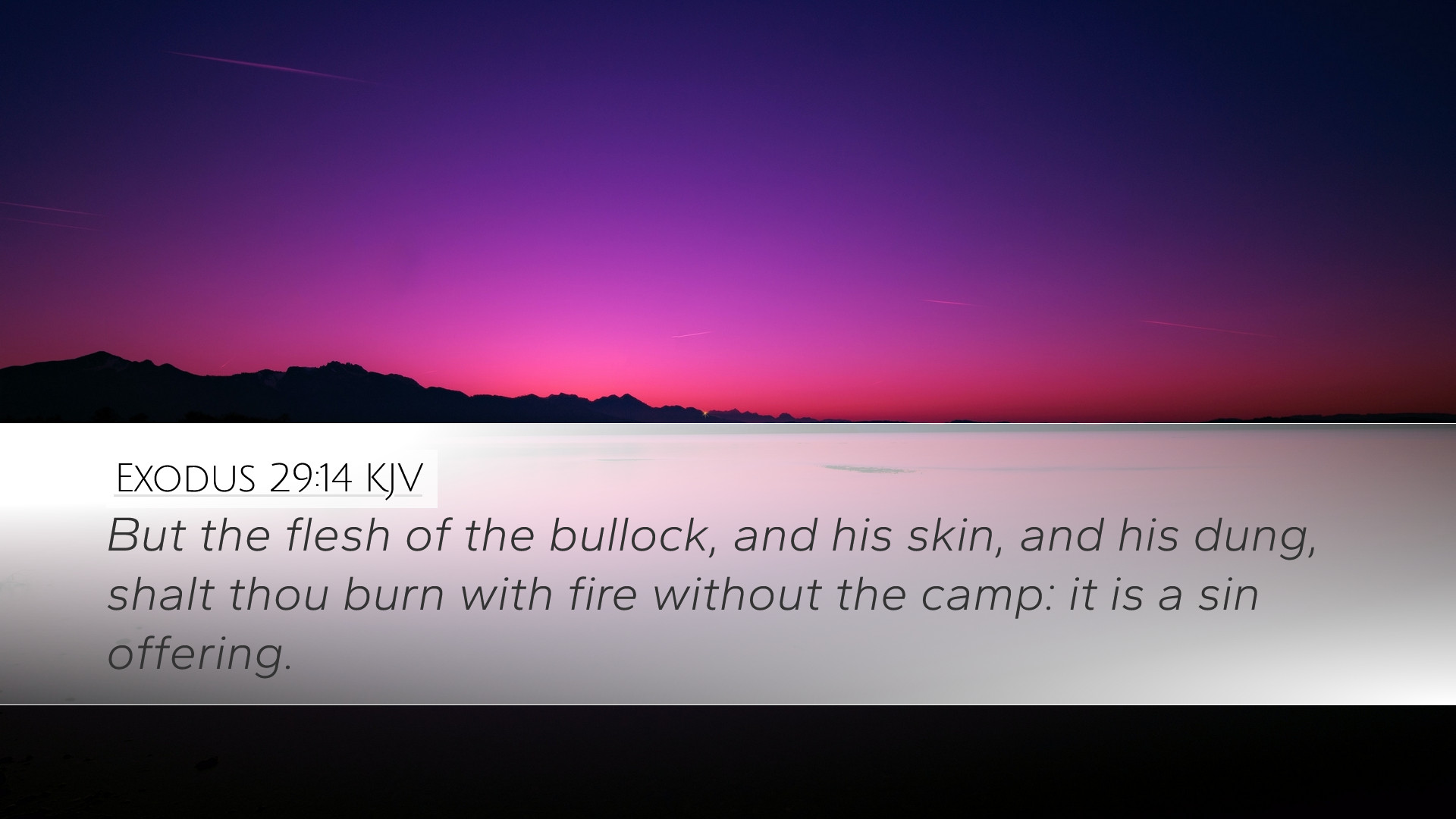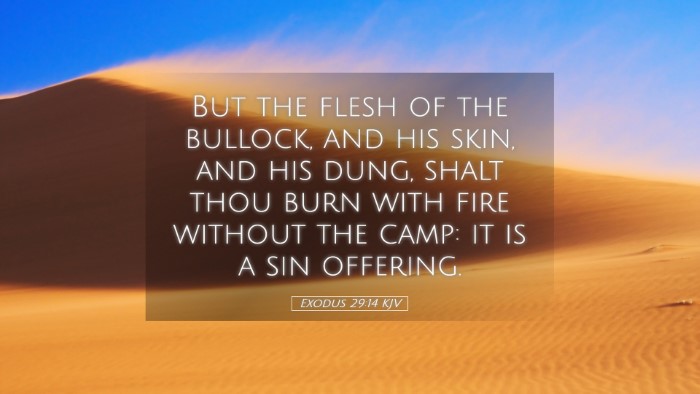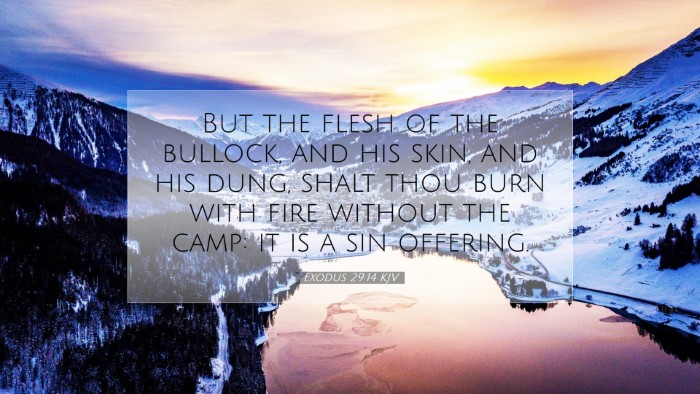Commentary on Exodus 29:14
Verse Text: "But the flesh of the bullock, and his skin, and his dung, shalt thou burn with fire without the camp: it is a sin offering."
Introduction
Exodus 29:14 is part of the instructions for the consecration of priests as laid out by God to Moses. This pivotal verse illustrates the sacrificial system and the significant role of sin offerings in the ancient Israelite community. Understanding this verse requires an examination of the themes of sacrifice, atonement, and holiness.
Contextual Analysis
According to Matthew Henry, the events surrounding Exodus 29 involve the detailed instructions given by God concerning the ordination of Aaron and his sons as priests. This chapter sets a precedent for the sacrificial practices that would follow throughout Israel's history. The command to burn the flesh, skin, and dung of the bullock outside the camp underscores the seriousness of sin and the need for purification.
Historical Significance
Albert Barnes notes that this particular sin offering was not to be consumed by the priests, unlike other sacrifices. Rather, it is treated with utmost disrespect—as it is disposed of outside the camp. This act reflects the concept of removing sin from the community and symbolizes the complete eradication of the consequences of sin.
Theological Implications
The overarching theme of sacrifice in Exodus 29:14 is tied to the concept of sin and the need for atonement. The sin offering serves as a reminder of the necessity of dealing with sin seriously. Adam Clarke emphasizes that every element of the sacrifice had a designated purpose and symbolism. The choice of a bullock reflects the severity of the sin, as the bullock was considered a significant offering in terms of value and importance.
The Nature of the Offering
- Sacrifice of Substitution: The bullock represents a substitution for the sins of the people. Its death is necessary to provide a covering for the transgressions of the offeror.
- Public and Private Atonement: By performing the offering outside the camp, it reinforces the separation of holy from unholy and the community from sin.
- Symbol of Holiness: The act of burning the offering symbolizes complete consumption by God's judgment on sin—illustrating that nothing unclean can dwell in God’s presence.
Practical Application for Believers
The application of this text is profound for contemporary believers. As Matthew Henry indicates, understanding the significance of sin offerings leads to a greater appreciation for Christ's sacrifice. Just as the bullock was offered as an atonement, Christ serves as the ultimate sin offering, being "led as a lamb to the slaughter" (Isaiah 53:7).
Reflection on Atonement
This verse prompts reflection on the nature of atonement in the life of a believer. The act of placing one’s sins upon the offering acts as a reminder that sin has consequences, and it emphasizes the unmerited grace and love of God. Albert Barnes highlights that believers should not take the grace of God lightly, for the price of sin was paid with a high cost.
Call to Holiness
Furthermore, the holiness associated with these sacrifices is crucial. Adam Clarke asserts that believers are called to live lives that reflect the holiness of God. The act of segregation of the sacrifice outside the camp teaches Christians about the need for discerning and separating themselves from sin.
Conclusion
Exodus 29:14 serves as a critical verse that encapsulates the significant themes of sacrifice, atonement, and holiness required in the relationship between God and His people. As we reflect on this verse from both historical and theological perspectives, it becomes clear that the principles of sacrifice and the understanding of sin remain vital for contemporary faith practice.
In essence, Exodus 29:14 not only provides insight into the priestly functions in ancient Israel but also correlates richly with the complete work of Christ in redeeming humanity, urging believers to cultivate an awareness of sin and a dedication to holiness.


